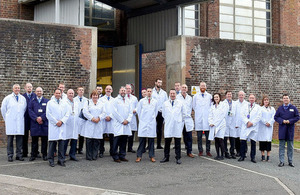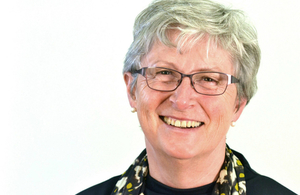A new Public Health England (PHE) report shows people with severe mental illness (SMI) suffer significantly worse physical health compared to the general population, with the greatest inequalities seen among younger people.
The report looks at GP data for adults aged under 75. It was prompted by the inequalities that are known to exist in people with severe mental illness who die on average 15 to 20 years earlier than the general population. It is part of wider work to improve the physical health of people with mental illness, by underpinning action plans with better data, increasing early detection and expanding access to physical and follow-up care.
Severe mental illness refers to people who have received a diagnosis of bipolar affective disorder or schizophrenia, or who have experienced an episode of psychosis.
The report found patients with SMI have a higher prevalence of:
- obesity (1.8 times more prevalent than the general population)
- diabetes (1.9 times)
- Chronic Obstructive Pulmonary Disease (2.1 times)
- stroke (1.6 times)
- heart failure (1.5 times)
- Coronary Heart Disease (1.2 times)
- asthma (1.2 times)
Patients with SMI are also around twice as likely to have multiple physical health conditions as the general population.
Younger people (aged 15 to 34 years) with SMI experience the greatest level of health inequalities. They are 5 times more likely to have 3 or more physical health conditions than the general population.
Younger people with SMI suffer further from a higher prevalence of:
- obesity (3 times more prevalent than the general population)
- diabetes (3.7 times)
- hypertension (3.2 times)
Professor Julia Verne, Head of Clinical Epidemiology at Public Health England, said:
It’s unacceptable that people with severe mental illness live with more ill health and die up to 20 years younger than the rest of the population.
We need to look beyond mental illness to a ‘whole person’ approach to health care, helping to improve peoples’ lives. It is vital that people experiencing severe mental illness are supported to improve their physical health, including better access to support and services such as screening programmes, health checks and stop smoking services.
Professor Tim Kendall, national clinical director for mental health at NHS England said:
Improving the life expectancy of people with serious mental health issues needs coordinated action, and this report adds to our knowledge, reinforcing the need for a continued focus on closing the physical health outcomes gap.
The NHS is already increasing early detection and expanding access to evidence-based physical care assessment and follow-up care, with more than 280,000 people set to get help by 2020 to 2021, while the NHS long-term plan will set out further priorities for the years ahead.
Mark Winstanley, CEO of mental health charity Rethink, said:
It is hugely concerning that the average life expectancy of someone living with serious mental illness is the same as the life expectancy of the average adult in the 1950’s.
The physical health needs of people experiencing serious mental illness must be taken into consideration alongside their mental health needs. We hope that this timely report from Public Health England alongside the work of the Equally Well collaboration will bring around much-needed change.
National Institute for Health and Care Excellence (NICE) guideline on psychosis and schizophrenia in adults recommends GPs monitor the physical health of patients with Severe Mental Illness. It recommends that patients with Severe Mental Illness have at least one annual physical health review that includes among others, checks on weight or BMI, metabolic status, pulse and blood pressure monitoring, as well as appropriate interventions and support with recovery.


